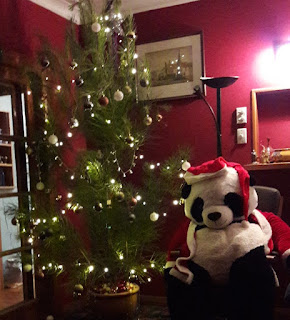 Our era of Covid19
has been scary. I have felt a heightened tension throughout the lockdown. Tears
well easily. Global uncertainty is the new normal. The only certainty is that
there is more uncertainty and economic hard ship to come.
Our era of Covid19
has been scary. I have felt a heightened tension throughout the lockdown. Tears
well easily. Global uncertainty is the new normal. The only certainty is that
there is more uncertainty and economic hard ship to come.
How has Covid19
affected migrants? Here are some
challenges I have become aware of. Please feel free to add your experiences to
this blog in the comments below.
Panic reactions
We
all had to prepare for an unknown. Stay at home. Stay safe. Be kind.
Free movement stopped. We waited to be guided or dictated
to. Reactions were varied. Panic buying relatively harmless; racial slurs and
attacks harmful. Racial tension was real, particularly towards the Chinese.
Trump called the virus, "The Chinese virus." People of Asian
appearance were asked to leave buses or establishments.
"Outbreaks
create fear, and fear is a key ingredient for racism and xenophobia to
thrive." LancetVol395
It was as if there
had to be blame. If not the Governments then who?
Other experiences has shown that people have grabbed at opportunities to be kind. A
Chinese migrant told me that she was afraid at first of racism as a result of
Covid19, but instead people asked how her family in China were coping.
Visiting rights ended
As migrants we count on keeping up connection with our family and loved
ones by visiting or having visitors. About every two years I would feel a pull
to "go home." That pull may be felt more frequent if your loved ones are
unwell. Having visitors come to you helps postpone that pull. In a pre-Covid19 world the
frequency of visits was determined by many factors. At the moment our visiting
rights have stopped. Even if we win lotto we are unable to see our overseas
loved ones. There is no way to plan for a visit in the near future. We
are all on hold. I feel so sad for those who have had the death of a loved one.
I can't imagine the feelings they experience when there was no way to be where
you would most want to be to share the grief. Our choices have been limited. We
can do nothing but wait.
Support Network
I have promoted the importance of a migrant having a good support network in my book and blogs. This support network may be in the form of a neighbour, a colleague from a place of work, volunteering or group. A person or people who will look out for you and who you can look out for. Covid19 is a time where you will appreciate the support network you have, or will realise that you don't have one. As migrants we can be inclined to 'not make a fuss' not appear to ask for anything. (We are like a guest in the home we have chosen.) With no support network a migrant may miss out on what is available to them.It was great to hear that migrants helping other needy migrants, guessing that lack of knowledge or fear had prevented the needy from making them selves known. Giving and receiving makes both parties feel better.
Employment
Will migrants be more likely to be unemployed? Maybe, but as a migrant you have the advantage of adapting, being flexible, and knowing what is most important to you. Your proven adaptability may make you the most desirable employee.
I have always said migrants are motivated. They have already shown they can adapt. They have moved themselves and their families from their country of origin to a new home. In times of economic hardship it may be that migrants adaptability makes them more employable.
How can we get over these challenges?
Strategies:
- Report any racism. If not to officials, to someone who cares. Having a good listening ear can take the burden from you and let others know that racism is happening. Focus on those that have not been racist.
- If you are lacking a support network then this is a time to build one up. Do something for a neighbour. Contact the local councils/libraries/help lines to find out what is available to help you.
- Keep contact with your loved ones through Zoom, Skype, Messenger. Write a letter, it may take ages to get to the destination, but it will bring joy when it arrives.
- Accept that this is a time where there are no visits or visitors. A fallow field. An intermission from the plans of the next physical connection. We may treasure the freedom to connect all the more.
- Migrants are motivated. If you lose your job, present yourself as skilled, adaptable and flexible. Keep active by volunteering.
Positive thoughts to
hold onto:
The whole world is
living with uncertainty. Migrants or not there is a belonging in that
uncertainly.
There are heightened
emotions. We may need to look at how we are reacting to loosen the tension. Matt Heath in
"Stressed out?" highlighted:
"The more we
value the things outside our control, the less control we have" Epictetus
"The whole
future lies in uncertainty so live immediately." Seneca
"If it is not
right do not do it; if it is not true do not say it." Marcus Aurelius
I feel I have been
fortunate during Covid19. I managed to see my family last December and I have
been able to continue working. My insights could be narrow. Please feel free to
share your experiences to help other migrants.
Other Links













